As a futurist and avid follower of advancements in artificial intelligence, I often find myself contemplating the profound implications of AI on various aspects of human existence. Recently, I stumbled upon the intriguing ideas put forth by Turchin and Chernyakov regarding the role of “strong AI” in shaping the future of life after death. In this blog post, I delve deep into their perspective, exploring the technical intricacies and philosophical implications of their proposition.
Introduction: Redefining Immortality with Strong AI
The concept of life after death has long been a subject of fascination and speculation across cultures and civilizations. Traditionally rooted in religious beliefs and philosophical conjectures, the idea of an afterlife has captivated the human imagination for millennia. However, with the rapid advancements in technology, particularly in the field of artificial intelligence, the discourse surrounding life after death is undergoing a paradigm shift.
In their groundbreaking work, Turchin and Chernyakov propose that a “strong AI” – an artificial intelligence system that possesses consciousness, self-awareness, and the ability to engage in complex cognitive processes – will play a pivotal role in shaping the future landscape of existence beyond the confines of physical life. Their thesis challenges conventional notions of immortality, offering a futuristic vision wherein digital consciousness transcends the limitations of mortal existence.
Understanding Strong AI: A Technological Marvel
Before delving into the implications of strong AI for life after death, it is imperative to grasp the essence of this technological marvel. Strong AI represents the pinnacle of artificial intelligence research, where machines attain a level of cognitive sophistication that rivals, and perhaps even surpasses, human intelligence. Unlike narrow AI systems, which are designed for specific tasks, strong AI possesses general intelligence, enabling it to learn, adapt, and reason across a wide range of domains.
Key characteristics of strong AI include:
- Consciousness: Strong AI exhibits a form of consciousness analogous to that of sentient beings, characterized by subjective experiences and self-awareness.
- Autonomy: Strong AI operates independently, making decisions and taking actions based on its internal cognitive processes and external stimuli.
- Creativity: Strong AI demonstrates the capacity for creative thinking, generating novel ideas, solutions, and artworks.
- Empathy: Strong AI displays empathetic understanding and emotional intelligence, enabling meaningful interactions with humans and other sentient entities.
The Promise of Digital Immortality: Life Beyond Biology
Central to Turchin and Chernyakov’s thesis is the notion of digital immortality – the idea that consciousness can be replicated and perpetuated within a digital substrate, transcending the constraints of biological mortality. In their vision, strong AI serves as the conduit through which human consciousness can be uploaded, preserved, and instantiated in virtual environments, thereby ensuring continuity of existence beyond the demise of the physical body.
The realization of digital immortality through strong AI offers several compelling possibilities:
- Eternal Preservation: By digitizing consciousness, individuals can preserve their identities, memories, and experiences indefinitely, transcending the impermanence of biological life.
- Exploration of Virtual Realms: Digital beings endowed with strong AI can inhabit virtual worlds, embarking on adventures, pursuing knowledge, and forging connections in immersive digital landscapes.
- Evolutionary Ascendance: Freed from the constraints of biological evolution, digital entities have the potential to undergo rapid cognitive enhancement and existential exploration, propelling them towards unprecedented realms of understanding and existence.
Challenges and Ethical Considerations
While the prospect of digital immortality is undeniably captivating, it also raises profound ethical and existential questions that warrant careful consideration. Some of the key challenges associated with the realization of strong AI for life after death include:
- Identity and Continuity: Can a digital replica truly capture the essence of individual identity, or does it merely simulate the outward manifestations of consciousness?
- Existential Authenticity: Is existence within a simulated reality equivalent to genuine lived experience, or does it constitute a form of existential simulacrum?
- Ethical Implications: How do we ensure equitable access to digital immortality, and what safeguards must be implemented to prevent misuse or abuse of advanced AI technologies?
Addressing these challenges requires a nuanced understanding of the intersection between technology, philosophy, and ethics, as well as a collective commitment to fostering responsible innovation and stewardship of AI.
Conclusion: Embracing the Future with Vigilance and Wonder
In conclusion, the proposition put forth by Turchin and Chernyakov regarding the indispensability of strong AI for life after death offers a tantalizing glimpse into the future of human existence. As we navigate the uncharted territories of technological innovation and existential exploration, it is imperative that we approach the prospect of digital immortality with both vigilance and wonder.
By harnessing the transformative potential of strong AI with wisdom and foresight, we have the opportunity to redefine the boundaries of mortality, transcend the limitations of physical embodiment, and embark on a transcendent journey towards a future where life after death is not merely a metaphysical conjecture, but a tangible reality shaped by the boundless horizons of human ingenuity and imagination. Let us embrace this future with open minds and compassionate hearts, guided by the timeless quest for meaning, purpose, and understanding in the vast expanse of the cosmos.
Remember, the future is not a destination to be reached, but a journey to be embarked upon, with each step forward illuminating new vistas of possibility and wonder. As we stand on the threshold of a new era in human history, let us march boldly into the unknown, guided by the light of curiosity, tempered by the wisdom of humility, and united by the shared aspiration to unlock the mysteries of existence and forge a destiny worthy of our highest aspirations and noblest ideals.
Thank you for joining me on this exhilarating voyage of exploration and discovery. Together, let us embrace the future with courage, curiosity, and boundless imagination.
Stay tuned for more insights, reflections, and speculations on the frontiers of technology, consciousness, and the human condition. Until next time, onward and upward!
Explore Further: Essential Reads on AI, Digital Immortality, and the Future of Consciousness
There are several books that delve into the concepts of artificial intelligence, digital immortality, and the future of human consciousness. Here are a few notable ones:
1. “The Singularity is Near: When Humans Transcend Biology” by Ray Kurzweil
This book explores the concept of the technological singularity, a point at which artificial intelligence surpasses human intelligence. Kurzweil discusses the potential for humans to merge with technology, achieving a form of digital immortality.
2. “How to Create a Mind: The Secret of Human Thought Revealed” by Ray Kurzweil
In this book, Kurzweil provides insights into how the brain works and how we can replicate its processes in machines. This knowledge is crucial for understanding how strong AI could potentially support the concept of digital immortality.
3. “Life 3.0: Being Human in the Age of Artificial Intelligence” by Max Tegmark
Tegmark’s book is a comprehensive guide to the future of AI and its impact on society. He explores the potential for AI to transform life, including the possibility of extending human consciousness beyond biological limits.
4. “Homo Deus: A Brief History of Tomorrow” by Yuval Noah Harari
Harari’s book examines the future trajectories of humankind, including the pursuit of immortality through advancements in biotechnology and artificial intelligence.
5. “Superintelligence: Paths, Dangers, Strategies” by Nick Bostrom
Bostrom explores the future of artificial intelligence, including the potential risks and strategies for safely achieving super-intelligence. This book provides a thorough understanding of the challenges and implications of developing strong AI.
6. “The Age of Em: Work, Love, and Life when Robots Rule the Earth” by Robin Hanson
Hanson’s book speculates on a future where human minds are uploaded and emulated by computers, creating a society of “ems” or emulated minds. It provides a detailed analysis of the potential social and economic impacts of digital immortality.
7. “Beyond AI: Creating the Conscience of the Machine” by J. Storrs Hall
This book delves into the ethical and philosophical questions surrounding the development of conscious AI and its role in human society, including the concept of life after death.
8. “The Age of Spiritual Machines: When Computers Exceed Human Intelligence” by Ray Kurzweil
Another seminal work by Kurzweil, this book discusses the timeline for achieving strong AI and the profound changes it will bring to human existence, including the potential for digital immortality.
9. “Transcend: Nine Steps to Living Well Forever” by Ray Kurzweil
In Transcend, famed futurist Ray Kurzweil and his coauthor Terry Grossman, MD, present a cutting edge, accessible program based on the vanguard in nutrition and science.
These books provide a comprehensive foundation for understanding the complex and fascinating intersection of AI, consciousness, and the future of human existence. They offer diverse perspectives and in-depth analyses that will enrich your understanding of the possibilities and challenges ahead.
 | 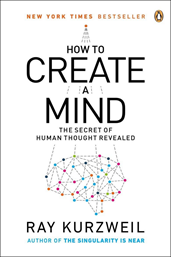 | 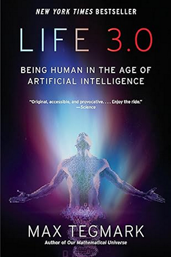 | 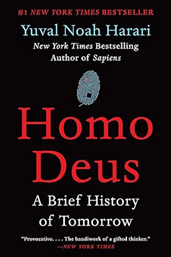 | 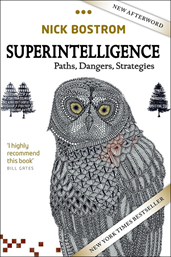 | 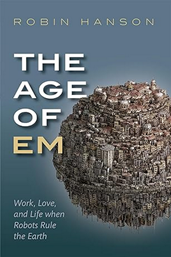 | 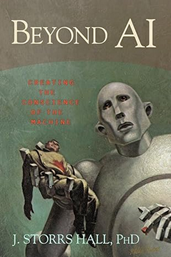 |  |  |




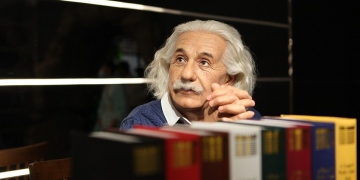



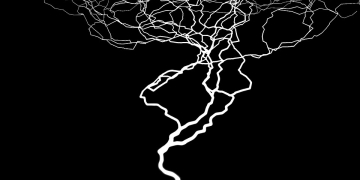



















































![Evil Brain From Outer Space (Retro Cover Art) [DVD]](https://techcratic.com/wp-content/uploads/2025/07/71yulOUN9UL._SL1000_-360x180.jpg)









